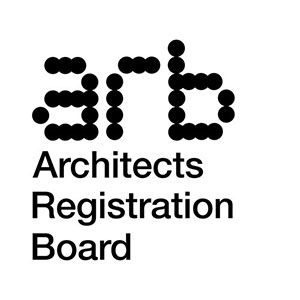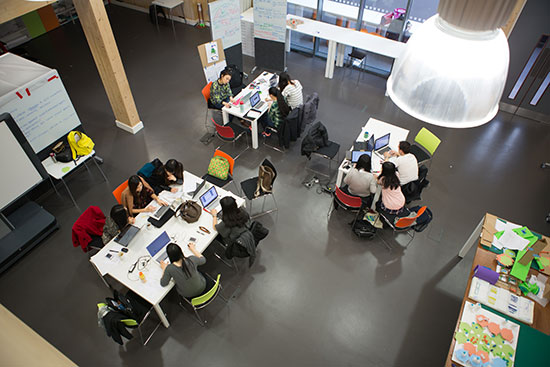Why Lancaster?
- Our unique location adjacent to a small wood, on the edge of the Lake District World Heritage site, provides an excellent base from which to investigate the global climate emergency
- Our collaborative community of students, researchers and practitioners are collectively engaged in the exploration of ethical practice.
- Work with practices on significant UK projects including Eden North and Lancaster Garden Village to influence the future direction of the profession.
- We teach in a boutique environment that equips students with essential skills including fabrication and prototyping, parametricism, machine learning and carbon calculation.
- You will work in your own dedicated studio space, open 24/7 for you to draw, model and think in.
The architecture industry is changing in response to the climate crisis. To keep up, you need to be agile, flexible and quick at finding sustainable solutions. Join us at Lancaster to perfect the skills you need to be a leader in this profession and tackle the pressing problems facing the world today.
Addressing the big questions
Our team of architects are committed to looking closely at how to design thoughtfully and ethically to reduce carbon emissions and improve sustainability. The course has been designed to prioritise three themes to drive this change.
- The Climate Emergency
- Future Practice
- Digital Crafting
Studying here, you’ll spend half the time in studio, and spend the rest of the time in workshops, lectures or seminars. Our design project themes cover a diverse range of areas, from policy and community to parametric and generative architecture. You might also look at the climate crisis or Arts and Crafts in architecture.
Spend time in the studio
As well as an individual working space in our studios, you'll use our workshops where you can do model-making at various scales, use hand tools and become familiar with digital fabrication equipment. Our digital facilities also include laser scanning, visualisation kits and large-scale printing, as well as access to all the specialist software you need.
Carrying out your own piece of research will be a key part of this course. It will also be your opportunity to look at an area of architecture through an ethical lens. We’ll prepare you for this project by exploring the methods you can apply to address the crucial questions in this area.
Please email us if you'd like us to send you a free architect's sketchbook.
Accreditation
The M.Arch. Master of Architecture (Part II) is fully accredited by the ARB (Architects Registration Board) and RIBA.
You can find information about professional qualifications on the RIBA website.
TEA Talks
We run regular events on the theme of Technology, Environment and Architecture. These feature talks and discussion with leading experts. Find out more and book a place at our next event.
Lancaster University School of Architecture
We are committed to enacting positive change through our research. Making a difference to people, places and spaces through careful collaboration. Discover our research.
Lancaster School of Architecture is an affiliate of ImaginationLancaster, the globally recognised design-led research lab at Lancaster University. ImaginationLancaster is renowned for it's research into current and future design and architecture challenges facing cities, communities, factories, workplaces and homes.




